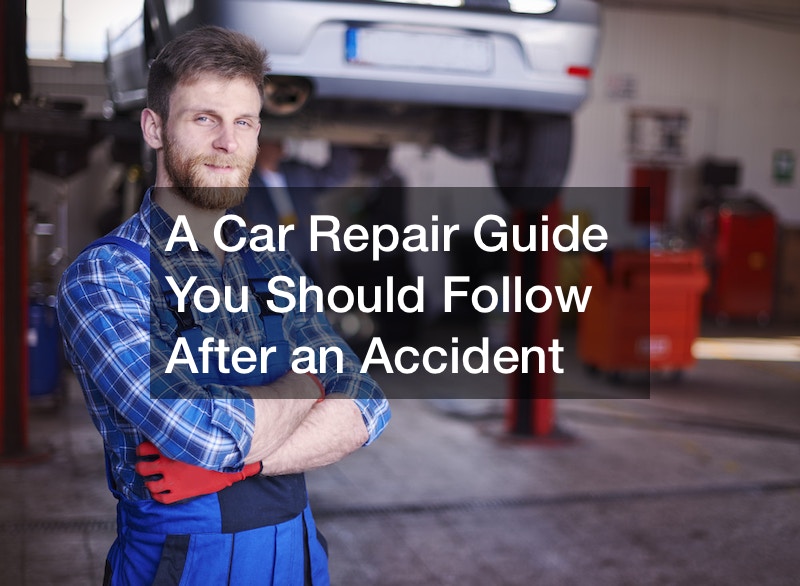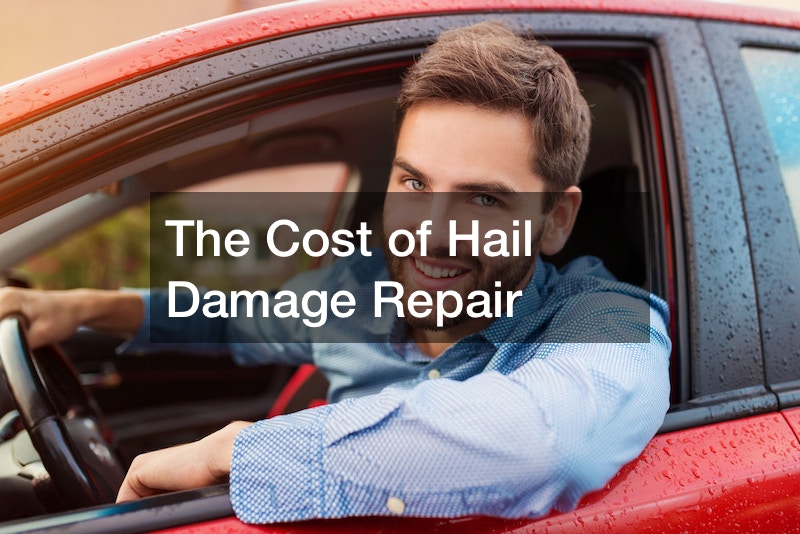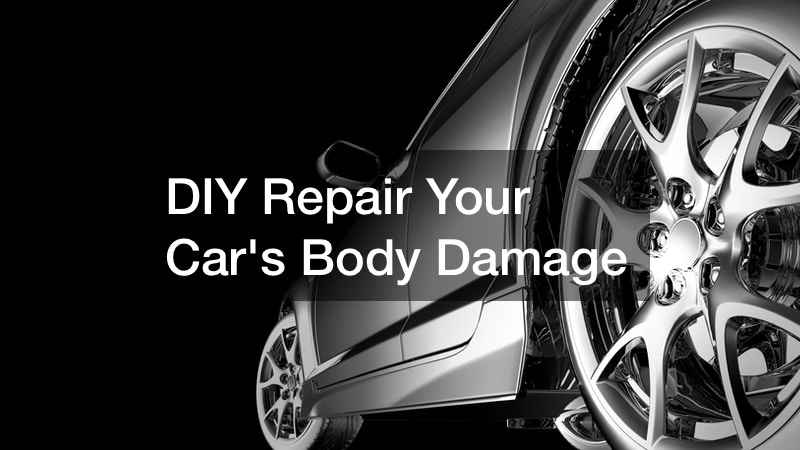
Accidents are unforeseen and might cause harm to a person. The parties concerned may experience enormous emotional and financial strain as a result. Therefore, it’s crucial to be aware of what to do if you or a family member is involved in a car accident. You will learn from this article how to handle a car accident and what to do in different situations before going to car repair shops.
Stay at the Scene

Before heading out for a car repair, never leave the site of a car collision, no matter how minor or severe, unless your life is in immediate danger. Leaving the scene is a punishable violation, whether or not you are at fault. Your car’s engine should be turned off, and you should turn on your warning lights to let other drivers who are approaching know you are there.
Check your surroundings and, depending on the collision’s severity, yourself and your passengers for any physical injuries. Try not to move if you are critically hurt. Instead, tell anyone around and wait for help. Move aside from the road to a safe location if the collision is minor and only the automobile is damaged. Inform the police right away if there is an untimely death.
Contact the Police
Calling the police is the second important step. Even if there are no significant injuries, the law still requires this. A police record will be needed when processing car insurance claims. Thus this is significant. In case of any damage, personal harm to you or your passengers, or even worse, death, the police will be crucial in ensuring you receive the necessary aid. When police officers arrive on the scene, remember to record their name and badge number before looking for a car repair.
Compile Information

Gathering information from the third party involved in mobile auto detailing is a crucial next step. Please ensure you get their contact information and whatever else you deem relevant. This could include their names, phone numbers, license plate numbers, automobile make and model, and driver’s license numbers, which will simplify the process if you start to follow up. You must get this information in addition to the cops assigned to the site.
Keep Track of the Mishap
When an accident occurs, things hurry, and it is simple to forget the specifics of the disaster. As a result, if you are unharmed and no one else at the site is either, make notes of an accurate narrative of what occurred at the time of the accident and avoid making assumptions if you are unsure. It is crucial to notice the state of the accident-related vehicles and take detailed pictures of them before going to a car repair.
Get in Touch With Your Insurance Provider
Notifying your insurance provider of the accident as soon as possible is another crucial step. Stick to the facts and try your best to explain everything. Additionally, distribute the notes you recorded and the police reports.
Any physical injuries brought on by accident must also be mentioned. Calling your insurer as soon as possible, possibly even while you’re on the scene, is crucial. They can then advise you on what is required and the following stages in submitting your claim.
Drive Your Automobile Away From the Area
Finally, after gathering all the necessary data, the police will ask you to transfer the cars from the area to the closest police station or tire store. If the automobiles can’t be driven, you or the police need to call a tow truck to remove them.
If your car is comprehensively insured, your insurance provider will cover the cost of towing up to a certain amount, depending on the individual benefits. If not, you’ll have to pay for the tow truck yourself.
We are aware of how upsetting incidents can be. However, it is best to maintain your composure to resolve any problems that may arise adequately. This is crucial, especially if you drive to a car repair shop near you.
There are more than six million car accidents in the US annually. Fortunately, most of them cause property damage, harming the car rather than the occupants. However, one out of every three incidents causes physical injury to the driver or passengers, and two out of every ten results in fatal injuries.
There are steps you can take to defend yourself and your interests in the event of an auto accident. The top ten actions to take in the event of an auto collision are detailed. Stop. Never leave the scene of an accident, even a small one, by driving away.
By positioning flares or maintaining your flashers, you can stop more mishaps. Preserve the set before calling for a car repair. It would help if you had a flashlight in case your lights go out in the dark and you must wait in your broken-down vehicle or on the side of the road.
Signal the police. The vehicles involved in the collision should stay still unless they obstruct traffic. Calling the police is a good idea, even if there are no significant injuries. Even if you are only filing an insurance claim for damage to your car, you might need a police report to do so. Only then can you seek out an auto body repair shop.
Keep a correct record. As entirely as possible, describe what occurred to the investigating officer(s) when the police came. Inform the officer if you are uncertain about any details. No facts should be guessed at, speculated upon, or misrepresented.
Taking Pictures

Get photos of the incident before hiring a car repair. If the automobiles have damage that may be seen, you should snap pictures of them if your car has a camera or your phone has one. It would help if you also took photos of any visible wounds you may have. If you cannot snap photos at the accident scene, do so as soon as you can after it has occurred. You must not, however, obstruct the ongoing police inquiry.
Distribute information. The name, address, and phone number of every person involved in the collision, including the drivers and passengers, should be obtained, even if the police do not arrive at the scene. Usually, this data is gathered by the police officer conducting the investigation.
It would help if you also learned more about insurance by requesting to see the insurance cards for each vehicle involved in the collision. For you or your attorney to get in touch with any witnesses in the future, you should also acquire their contact information, if there are any.
You must ask the state police for an account if the collision occurs on a state roadway. The investigating officer will typically give each driver a police report number if the police are called to the accident. When you want the police report, you can call that number. You could request the services of a car repair to meet you at the location.
Medical Attention
Seek medical care because motor vehicle collision injuries frequently take time to manifest. A day or two after a vehicle accident, most clients say they are in the most agony. You should visit your local emergency room or your family doctor to get treated if you weren’t 100% positive you weren’t hurt.
Your spinal cord can be seriously and permanently damaged in accidents, even with minimal impact. You might have sustained a concussion or a closed head injury if you briefly lost consciousness after the crash or appeared confused. If untreated, this can lead to abnormalities in cognition and behavior. Drop your vehicle off at a car repair and then head for a check-up.
Guaranteeing your rights by consulting with your lawyer is likely the most crucial action you should take following an accident. Your lawyer can defend your legal rights by ensuring that substantial evidence is not lost. After an accident, insurance firms frequently want to speak with claimants. Before making such a declaration, you must seek legal counsel.
Your lawyer can advise you on various topics, including ensuring that you receive the finest medical care possible and that you are fully reimbursed for your car. Personal injury lawyers are paid on a contingency basis, so there won’t be any fees unless they successfully get you compensation for your injuries.
Everyone wants to avoid vehicle accidents. But having a plan in place and understanding what to do in the event of an accident can save lives, lessen injuries, and make the claims process much smoother. This is especially true if you will visit an auto body repair garage.
For you to arrive at the scene ready, keep necessary, pertinent paperwork like your vehicle’s registration, evidence of auto insurance, and the name of your leasing agency in your car. Additionally, it’s a good idea to have critical medical information for you and your family members.
Checking the Vehicle

Check the emergency readiness of your vehicle, you can do this at an auto body services outlet of your choice After an accident, flares, orange cones, and emergency signage can assist protect your loved ones and your car from further harm. While we rely on technology, there is a potential that it could malfunction when you need to write down a phone number or license plate information, so have a pad and pen in your car just in case.
Ensure that you have enough auto insurance to fulfill your demands. Your car might need a car window tint that the comprehensive insurance will cover. While having insurance coverage does not replace good health and safety practices, it helps ease your mind to know that you are protected in the event of an accident.
Be careful. If it’s safe, move the car to the side of the road. Take particular care while interacting with the other driver if road rage causes the accident. Make sure to pull over in a secure location if you receive a bump from behind and believe you may be the target of a carjacking. If this is the case, you may require brake and wheel alignment services.
What to Report
Consider potential injuries. Make sure everyone is alright before attending to anything else. If there are any injuries, dial 911. Examine the car’s damage. Review the severity of the car damage after making sure everyone is okay. Take photos if you can before looking out for a car repair center.
Refrain from evacuating the accident scene. Try to identify the owner if you come across an unattended automobile. If you cannot, leave a message with your name, address, and contact information. Make sure to note the specifics of the collision, such as the car’s make and model as well as the location of the incident. Based on the severity of the damage, you may require brakes and wheel alignment.
Gather as much information as you can. Obtain all crash participants’ names and contact details, including any witnesses. In case of a multi-car collision, request the driver’s license, proof of insurance, and the makes and models of the other vehicles from the other driver or drivers. Record the accident’s location, the hour of the day, and the weather. Smartphones are an excellent tool for documenting drivers and vehicles (as well as accident details).
Final Considerations
Inform the authorities immediately if serious injuries occur in a severe accident. Inform the traffic police or highway patrol. If necessary, the police will contact the closest emergency room. Ask the officers where you may find a copy of their accident report, and acquire their names and badge numbers.
Report the accident even if the police are unable to attend the scene. To report an incident, go to the local police department’s website or physical location. Having a formal record can be beneficial if the other motorist decides to file a lawsuit for damages or medical costs incurred or if the damage to your automobile turns out to be more extensive than first anticipated, like in the case of a brake repair. Additionally, the report is a requirement for filing an insurance claim.
Commence the claims process before getting a car repair service. The sooner you inform your insurance representative of the accident, the easier it will be for them to recall the specifics.
Treating car accidents with the utmost care and attention to detail is crucial. Ensure you capture the particulars of every incident angle, the parties involved, and the officers who handled the case. Remember to keep calm and stay composed through the entire ordeal. Most importantly, do not neglect your health even if you feel excellent.



